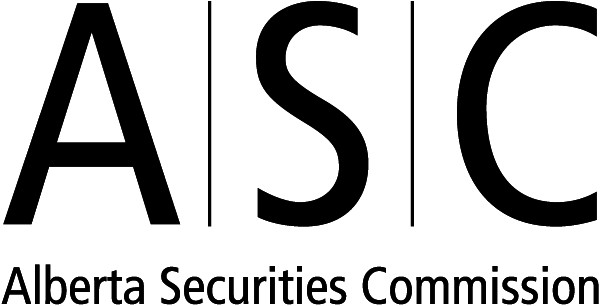News Releases
Canadian Securities Regulators Announce that TSX Inc. will Act as an Information Processor for Exchange-Traded Securities
Jun 05, 2009
The Canadian Securities Administrators (CSA) today published CSA Staff Notice 21-309 Information Processor for Exchange-Traded Securities other than Options. The notice informs the public that TSX Inc. (TSX) will act as an information processor for exchange-traded securities other than options, commencing July 1, 2009 for a period of five years.
“In today’s multiple marketplace environment, data consolidation is important for both marketplace participants and investors. An information processor would ensure that they have access to information from all of the marketplaces,” said Jean St-Gelais, CSA Chair and President, Autorité des marchés financiers.
In July 2006, the CSA published a notice inviting any interested party to file an application to become an information processor for exchange-traded securities. An information processor provides consolidated data to investors and market participants, facilitating compliance with regulatory requirements. The Bourse de Montréal Inc. (MX), CDS Inc. (CDS), and TSX submitted applications. Since the initial filing, the MX and CDS withdrew their applications. Over the course of the application process, the TSX also revised its proposal. The CSA is of the view that the revised TSX proposal meets all of the criteria set out in the 2006 notice. The information processor is designated as a market participant under the Securities Act (Ontario) and has been recognized as an information processor under the Securities Act (Québec).
During the review process, the CSA evaluated the applications to assess the applicants’ ability to meet the requirements of National Instrument 21-101 Marketplace Operation including requirements related to: the applicant’s systems and performance capabilities; standards and procedures for the collection, processing, distribution and publication of data; marketplace access to the information processor on fair and reasonable terms; sufficiency of financial resources; qualification of personnel; and existence of other information processors. The CSA also considered the applicants’ governance, processes to manage inherent conflicts of interest, fee structure and the fairness of their revenue allocation methods.
CSA Staff Notice 21-309 is available on the websites of the various CSA members. For more information, please refer to the attached backgrounder.
The CSA, the council of securities regulators of Canada’s provinces and territories, coordinates and harmonizes regulation for the Canadian capital markets.
– 30 –
For more information:
| Carolyn Shaw-Rimmington Ontario Securities Commission 416-593-2361 |
Sylvain Théberge Autorité des marchés financiers 514-940-2176 |
| Mark Dickey Alberta Securities Commission 604-899-6577 |
Ken Gracey British Columbia Securities Commission 403-297-4481 |
| Ainsley Cunningham Manitoba Securities Commission 204-945-4733 |
Wendy Connors-Beckett New Brunswick Securities Commission 506-643-7745 |
| Natalie MacLellan Nova Scotia Securities Commission 902-424-8586 |
Barbara Shourounis Saskatchewan Financial Services Commission 306-787-5842 |
| Janice Callbeck Department of the Attorney General Prince Edward Island 902-368-4552 |
Doug Connolly Financial Services Regulation Div. Newfoundland and Labrador 709-729-2594 |
| Fred Pretorius Yukon Securities Registry 867-667-5225 |
Louis Arki Nunavut Securities Office 867-975-6587 |
| Donn MacDougall Northwest Territories Securities Office 867-920-8984 |
CSA Staff Notice 21-309 Information Processor for Exchange-Traded Securities Other Than Options
Questions and Answers
- What information will TSX as the information processor offer?
TSX as the information processor will disseminate the following products:
• "Consolidated Data Feed", which will provide access to pre- and post-trade market data from each contributing marketplace;
• "Consolidated Last Sale", which will provide consolidated, real-time last sale data from all contributing marketplaces; and
• "Canadian Best Bid and Offer", which will provide a consolidated best bid and offer for all equity securities
The inclusion of a consolidated depth-of-book product will depend on the outcome of the discussions relating to the proposed CSA Trade-Through Protection Rule (amendments to National Instrument 21-101 Marketplace Operation and NI 23-101 Trading Rules published on October 17, 2008). The consolidated depth-of-book product would provide a single consolidated view of the order book. - Are market participants required to purchase the information provided by the information processor?
No. The information processor is not the only source from which real-time data can be obtained. Participants may rely on other data sources to obtain the data that they need, such as information vendors or direct data feeds from the marketplaces. - How will TSX address the conflicts of interest, whether real or perceived, associated with it being a competing marketplace and an information processor?
The primary steps to be taken by TSX in addressing potential conflicts of interest are as follows:
• a Governance Committee with marketplace representation will be established that will make decisions with respect to significant areas of the operations of the information processor;
• policies and procedures will be established to ensure that TSX staff who are not involved in operating the information processor do not acquire knowledge of, or access to, competitor data or client information;
• agreements with contributing marketplaces will include detailed terms that will ensure, on a commercial basis, that data transmitted to the TSX information processor will not be inappropriately manipulated by TSX; and
• third party technology, that will be independent from the technology of the exchanges owned and operated by TSX, will be used to consolidate the data.
In addition, TSX has provided undertakings (included at Appendix B to the Notice) to address governance and conflicts, including that the TSX information processor will not give the Toronto Stock Exchange or TSX Venture Exchange an unfair advantage with respect to their data as compared to other marketplaces. - Why is TSX allowed to act as an IP given the recent data outages?
The recent data outages related to the dissemination of TSX's own trading data. The Consolidated Data Feed technology to be used for the information processor function was unaffected and continued to disseminate consolidated data for all other marketplaces that use the service. More information can be obtained from the TSX. - What is the impact of the information processor on fees for market data?
The information processor’s fee model maintains the status quo with respect to market data fees. Marketplace participants will continue to pay current fees charged by each marketplace for consolidated data obtained through the information processor. We expect that data fees will not increase as a result of the introduction of an information processor. In addition, we note that we will be monitoring marketplaces to ensure that the fees they charge, and pass through the information processor, do not unreasonably prohibit, condition, or limit access to their services.
The CSA will begin a review of market data fees and will, upon the completion of this review, determine what, if any, steps may be needed to address any issues. We note that because it is important to have an information processor established now to consolidate data from multiple marketplaces, we decided not to delay the introduction of the information processor until the completion of this review.






